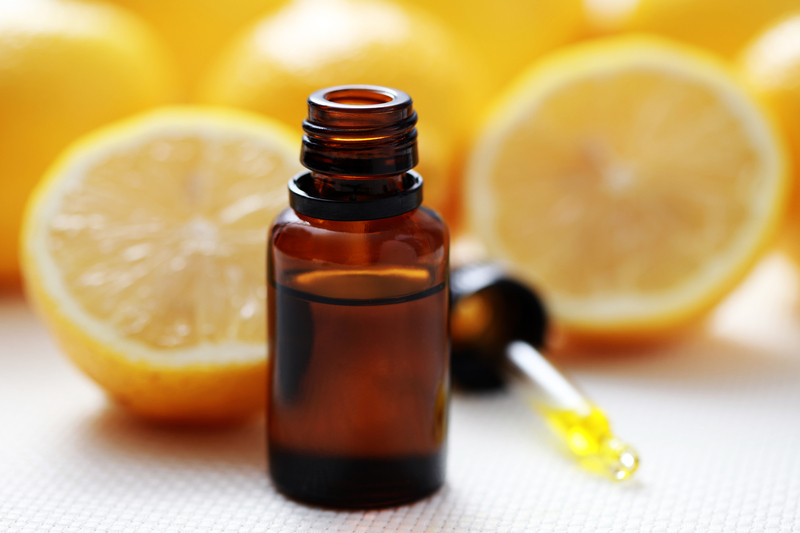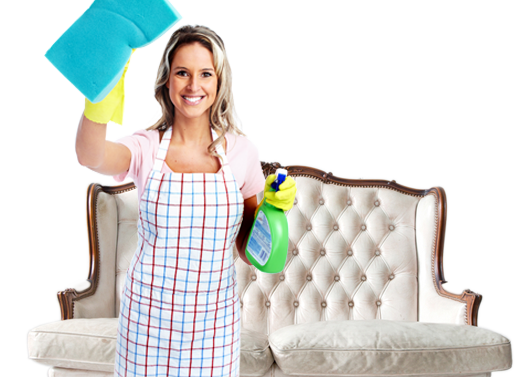Jewellery Care 101: Effective Cleaning Techniques
Posted on 25/08/2025
Jewellery Care 101: Effective Cleaning Techniques
Jewellery is not simply an accessory; it's an investment, a piece of art, and for many, a token of sentimental value. Whether your collection consists of timeless gold necklaces, luxury diamond rings, stunning silver earrings, or trendy costume pieces, proper jewellery care is essential. In this comprehensive guide, we delve into the tried-and-tested jewellery cleaning techniques that will keep your treasures sparkling for years to come. Learn how to clean gold, silver, platinum, diamonds, pearls, and costume jewellery with the right approach -- preventing damage and enhancing their brilliant shine.
Why Proper Jewellery Care Matters
Jewellery is exposed to various external elements daily, such as oils from skin, lotions, sweat, cosmetics, dust, and even environmental pollutants. Over time, these accumulate and cloud the shine or cause discolouration and tarnishing. Without a regular cleaning routine, even the most precious gems can lose their radiance. Adopting the best jewellery cleaning techniques not only restores brilliance but also extends the lifetime of your cherished pieces.

The Basics of Jewellery Maintenance
Before delving into specific cleaning methods, it's crucial to understand some general jewellery care tips that apply, regardless of the type or value of your pieces. Here's what to remember:
- Store your jewellery properly: Keep each item in a soft pouch or a storage box with individual compartments to avoid tangling or scratching.
- Remove jewellery before daily chores: Take off your rings, bracelets, or necklaces before chores like washing dishes, swimming, exercising, or showering to reduce exposure to chemicals and moisture.
- Avoid direct contact with chemicals: Perfumes, lotions, hairsprays, and cleaning agents can all damage various metals and gemstones.
- Regular inspections: Examine clasps, prongs, and settings regularly to ensure your jewellery is secure and safe to wear.
How to Clean Gold Jewellery: Techniques for Timeless Brilliance
Gold is valued for its beauty, durability, and resistance to tarnish, but it can still accumulate dirt, oils, and residue. For safe and effective gold jewellery cleaning, follow these steps:
Simple At-Home Gold Cleaning Method
- Prepare a mild cleaning solution by mixing a few drops of gentle dish soap with warm (not hot) water.
- Soak your gold jewellery for 15-30 minutes.
- Using a soft-bristled toothbrush, gently brush the jewellery, paying close attention to crevices where grime can accumulate.
- Rinse under lukewarm running water and pat dry with a lint-free cloth.
Important: Avoid abrasive cleaners, toothpaste, or hard brushes, as these can scratch gold.
Professional Gold Cleaning Tips
- Polishing cloths: Use a gold-specific polishing cloth to maintain shine between deeper cleans.
- Ultrasonic cleaners: These devices are effective but should only be used for solid gold pieces without gemstones, as vibrations may loosen settings or damage fragile stones.
Silver Jewellery Cleaning: Banish Tarnish for Brilliant Shine
Sterling silver jewellery is susceptible to tarnishing due to exposure to air and moisture. Restoring its brilliance is simple with the following silver care techniques:
DIY Silver Jewellery Cleaning Process
- Mix a few drops of mild dish soap with warm water in a bowl.
- Soak silver items for five to ten minutes.
- Use a clean, soft-bristled brush or a cloth to gently clean the surface.
- Rinse thoroughly and dry with a soft, lint-free towel.
Need to remove stubborn tarnish?
- Make a paste with three parts baking soda to one part water.
- Rub gently onto the silver with a soft cloth, then rinse and dry.
Warning: Avoid submerging silver jewellery with glued-in gemstones; the solution can loosen adhesives.
Professional Silver Cleaning and Polishing
- Silver polishing cloths are excellent for maintaining shine without scratching.
- If your silver is heavily tarnished, consider professional ultrasonic cleaning services.
Diamond Jewellery: Keeping Your Gems Gleaming
Diamonds are among the hardest substances, but they aren't immune to collecting oils from the skin, lotions, or other substances. Regular diamond cleaning helps keep their fire and brilliance intact.
Easy Diamond Cleaning at Home
- Soak diamond jewellery in a bowl of warm water mixed with a few drops of dish soap.
- Gently brush the diamond and setting with a soft, clean toothbrush.
- Rinse thoroughly and dry with a lint-free cloth.
Caution: Take extra care with antique or heavily set pieces to avoid dislodging small stones.
Advanced Diamond Cleaning
- Professional ultrasonic cleaners are suitable for diamonds, but consult a jeweller if your ring includes other delicate gemstones, as these machines may damage them.
- Steam cleaning is another effective method often used by jewellers for deep cleaning without abrasive chemicals.
Pearl Jewellery Care: Gentle Approaches for Delicate Beauty
Pearls are porous and soft, prone to scratching and damage if not handled with care. Their nacre can be affected by acids, alcohol, or harsh cleaning agents, which makes specialized cleaning essential.
How to Clean and Care for Pearl Jewellery
- Use a soft, damp cloth to wipe pearls after each wear. This removes body oils and prevents buildup.
- For deeper cleaning, mix a solution of lukewarm water and a very small amount of mild soap.
- Dip the cloth in the soapy water, then gently wipe the pearls -- never immerse pearls in water.
- Dry flat on a towel before storing.
Additional pearl care tips: Store pearls in a soft pouch away from harder metals or gemstones. Have stringed pearls restrung by a professional jeweller every few years to prevent breakage.
Platinum and Other Metals: Maintaining Strength and Shine
Platinum, titanium, and other metals are known for their strength and resistance to tarnish. However, even these resilient materials benefit from regular cleaning.
Cleaning Platinum, Titanium, and Alternative Metals
- Soak in a solution of warm water and gentle soap for 10-20 minutes.
- Scrub lightly with a soft-bristled brush or jewelry cloth.
- Rinse thoroughly and dry completely before wearing or storing.
Note: Platinum can develop a patina over time, giving it a unique, matte finish. If you prefer the original shine, have your jewellery professionally polished.
How to Clean Costume Jewellery: Essential Tips
Costume, or fashion, jewellery is typically made from inexpensive metals, plated finishes, and glass or plastic stones. Because of their delicate construction, costume jewellery requires special care:
Safe Cleaning for Costume Jewellery
- Wipe pieces gently with a soft, dry cloth after wearing.
- If deeper cleaning is needed, use a cloth slightly dampened with water. Keep water away from any stones to avoid loosening glue.
- Avoid soaking costume jewellery or using harsh chemicals, which may cause discolouration or damage.
Essential Jewellery Cleaning Tools and Products
To perform proper jewellery cleaning at home, assemble a small toolkit:
- Soft-bristled toothbrushes: For gentle scrubbing of crevices and intricate settings.
- Jewellery polishing cloths: Specially designed cloths help preserve shine and remove tarnish.
- Mild dish soap or jewellery cleaner: Choose products labelled safe for your jewellery's material.
- Lukewarm water: Prevents shock to gemstones and metals.
- Non-abrasive lint-free cloths: Ideal for drying washed jewellery and preventing scratches.
- Baking soda and water paste: Safely cleans tarnished silver.
- Small bowls and baskets: Keep pieces organized during soaking and rinsing.
Common Jewellery Cleaning Mistakes to Avoid
Improper cleaning can do more harm than good. Here are the most common jewellery care mistakes:
- Using harsh chemicals: Avoid bleach, ammonia, acetone, and abrasive cleaners which can pit or degrade both metals and gems.
- Ultrasonic cleaning without proper knowledge: Not all stones and settings can withstand ultrasonic cleaning. Ask your jeweller if you're unsure.
- Soaking delicate or glued jewellery: This can loosen stones and damage adhesives, especially in costume jewellery.
- Using hard brushes or stiff cloths: These can scratch metals and softer gemstones.
- Exposing jewellery to excessive heat: High temperatures can damage certain gems and alter metal finishes.
- Storing jewellery together: Tangling, scratching, and chipping are common when jewellery is not stored properly.
Expert Tips: How to Maintain Jewellery's Radiance Between Cleans
Cleaning is only part of comprehensive jewellery care. Preventative maintenance extends the intervals between deep cleanings:
- Remove jewellery during skincare routines to avoid residue from lotions or perfumes.
- Avoid swimming or showering with jewellery on, as chlorine and soap can dull finishes.
- Keep jewellery separate in soft-lined boxes to prevent pieces from scratching each other.
- Have valuable pieces inspected annually by a reputable jeweller for loose stones or worn clasps.
When to Seek Professional Jewellery Cleaning
While home cleaning is effective for routine maintenance, some situations call for professional expertise. Consider professional jewellery cleaning services for:
- Heirloom or antique jewellery that's delicate, valuable, or intricate.
- Pieces set with multiple gemstones or unusually soft stones like opal or turquoise.
- Jewellery with deep-set dirt, complex settings, or visible damage.
- Annual maintenance for engagement rings, wedding bands, or frequently worn items.
Professional jewellers use specialized tools and cleaning methods (such as ultrasonic cleaners, steam cleaning, or expert hand-polishing) that ensure thorough, safe results.

FAQs: Jewellery Cleaning and Care
- How often should I clean my jewellery?
Light, regular cleaning every 2-4 weeks is ideal for maintaining sparkle. Deep professional cleaning can be done annually. - Is toothpaste safe for cleaning jewellery?
No, toothpaste is abrasive and can scratch most precious metals and gems. - Can I use ultrasonic cleaners for all jewellery?
Only for items without soft, porous, or glued-in stones. Check manufacturer guidelines or consult a professional jeweller. - Should I insure valuable jewellery?
Yes, insuring high-value or sentimental pieces protects against loss, theft, or damage.
Conclusion: Make Jewellery Cleaning a Part of Your Routine
Proper jewellery care and effective cleaning techniques are key to preserving your collection's brilliance and sentimental value. By understanding your jewellery's materials and following the appropriate steps -- from gentle daily maintenance to occasional deep cleaning -- you'll keep every piece looking its best. Remember, a little attention today ensures your cherished jewels dazzle for generations.
Give your treasures the care they deserve, and they'll reward you with timeless beauty and sparkle.




